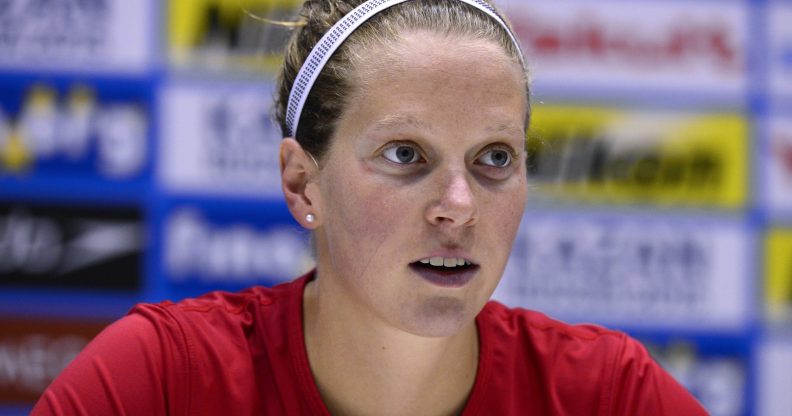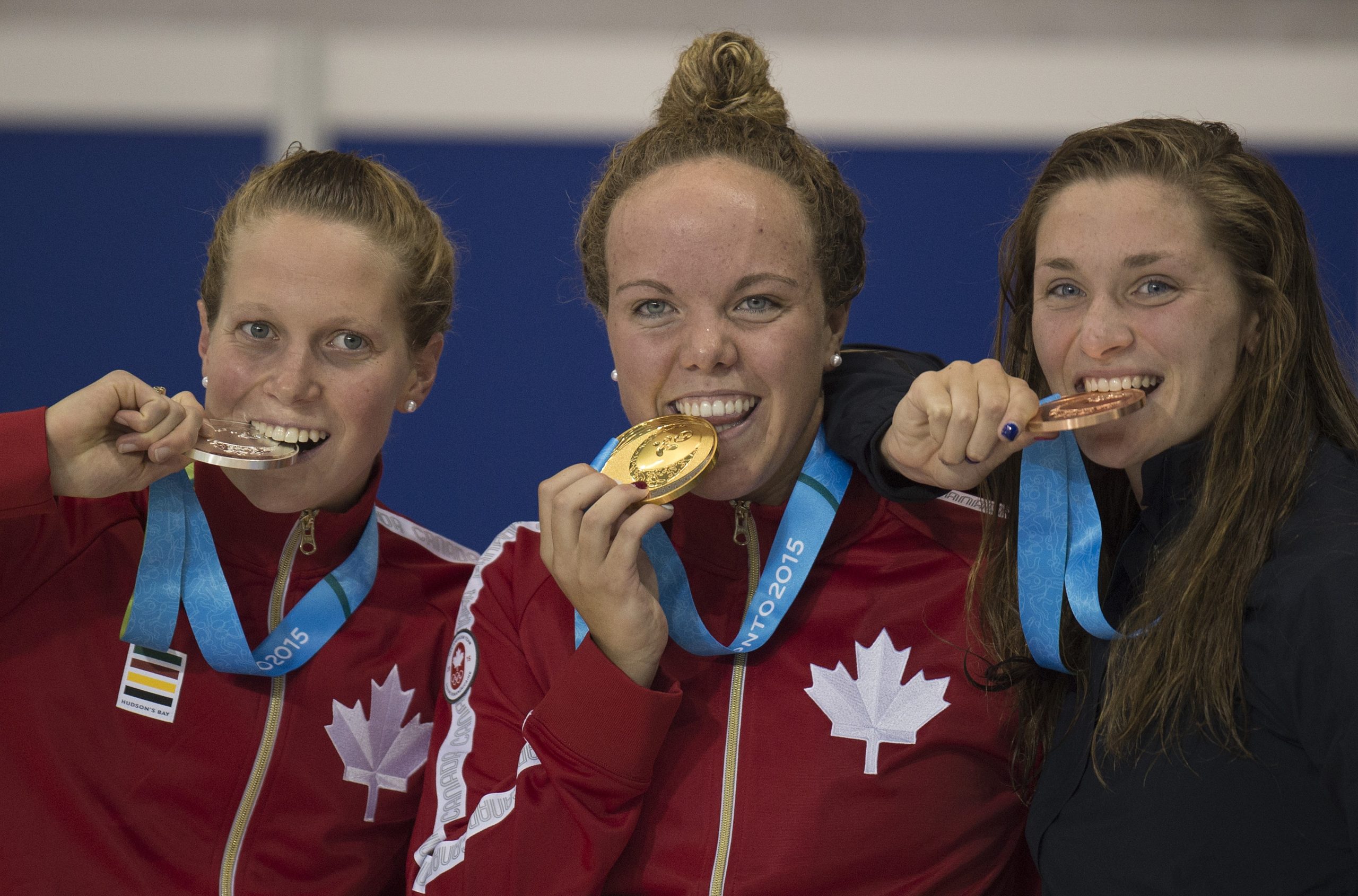Olympic swimmer proudly comes out as gay to set an inspiring example for women like her

Canadian swimmer Martha McCabe at the FINA World Championships in Barcelona on July 26, 2013. (Javier Soriano/AFP/Getty)
Retired Olympic swimmer Martha McCabe has come out as a lesbian, saying she hopes her own visibility will encourage other sports stars to do the same.
The Canadian Pan Am Games medallist specialised in the 200-metre breaststroke and placed fifth in the London 2012 Olympics, but it wasn’t until after she stopped competing that she began to explore her sexuality.
In her eight years on Canada’s national team McCabe estimates she had at least ten LGBT+ teammates. She believes that knowing more out sportswomen could have helped her understand her identity earlier on.
“I think because I didn’t see it in people I looked up to, the thought never crossed my mind. I didn’t question the norms society had built around me because I didn’t even realise there was something to question,” she told CBC.
McCabe now hopes to serve as a role model for increased LGBT+ representation in swimming, specifically on the women’s side, where she says it is severely lacking.
“I want to be an example to young female swimmers and help ones who are struggling with this, so they can see it’s normal,” she said.

Martha McCabe (left) winning silver in the Women’s 200M Breaststroke finals at the 2015 Pan American Games in Toronto, Canada. (JIM WATSON/AFP/Getty)
“Parents also need to recognise that this needs to be normalised. Kids don’t see this everywhere, and when you don’t see it, it becomes this hurdle you have to get over.”
Though she marched with the Canadian Olympic Committee (COC) in Toronto’s 2019 Pride parade, this year’s Pride was her first as a member of the LGBT+ community, and it opened her eyes to the importance of visibility.
“Seeing more and more high-profile athletes speak about the importance of coming out publicly throughout Pride Month made me realise that even though my experience has been pretty seamless, it is not the case for many young people,” she said.
“These young people need role models both for themselves and for the people around them to see that if you’re currently not accepting of the LGBTQ+ community, you need to further educate yourself, make sure you understand the meaning behind your words and the way you support others.”

